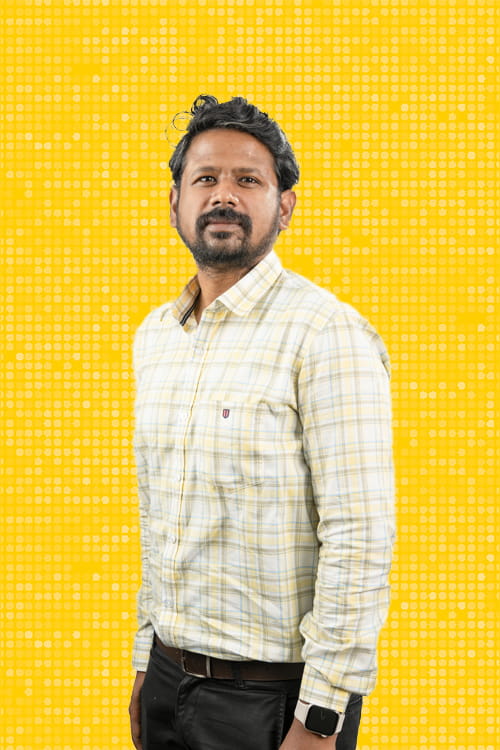
Senthilguru Kulanthaivel, Postdoctoral scholar, dentistry
Pioneers possibilities of tooth repair
“Senthilguru has showed enthusiasm and exemplary dedication to dental research. He is methodical in his research approach, and his command of the science is impeccable. He has made immense contributions to our research group and successfully developed many components of our research studies.” -Cristina Vidal, assistant professor of operative dentistry
Hometown: Tamil Nadu, India
Faculty mentor/advisor: Cristina De Mattos Pimenta Vidal, DDS, MS, PhD, assistant professor of operative dentistry; and Erica C. Teixeira, DDS, MS, PhD, associate professor and head of operative dentistry.
What is your degree program and anticipated graduation date? Postdoctoral Research Scholar; June 2024
Please describe your research: Part of my research investigates the contribution of host proteins to tooth inflammation and destruction in dental cavities. We explore how different bacteria known to be present at various stages of dental cavities can trigger different responses in the tooth’s cells. We expect to identify specific proteins expressed by the tooth cells and present in tooth tissues that can participate in destructive and reparative mechanisms as dental cavities advance. Other part of my research investigates the new biomaterials for dental restoration. Here, we formulate biomaterials and evaluate the physico-chemical and mechanical properties of these materials for dental applications.
In simple terms, why does this research matter? My research’s long-term goal is to accelerate the development of clinically useful and predictable reparative dental therapies as alternatives to traditional strategies involving extensive removal of dental cavities and costly tooth restorations or fillings. By investigating the role of host proteins in the progression of dental cavities, we expect to clarify how tooth components can regulate destructive and reparative mechanisms. Data from our projects will provide the foundation for developing novel therapies for dental caries management to promote a shift from invasive surgical restorative to conservative reparative treatment. Similarly, by evaluating different dental materials we could be able to formulate better biomaterials for effective dental restoration. This could improve the longevity and standard of the treatment.
How soon after starting at the University of Iowa were you able to participate in research? I was able to participate in research by 20 days of joining University of Iowa. Thanks for the support from my faculty advisors’, and Operative Dentistry Department, I was able to complete all the necessities as early as possible to start participating in the research.
How has being involved in research made you more successful at the University of Iowa? Being involved in research, I am able to learn new techniques and new instruments. I am able to know the advancements in other fields or areas of research through interactions with fellow researchers. The outcome of research activities such as Journal paper publications make me visible to the other researchers in the same background. Additionally, it also helps me to be updated with new advancement in the field of research.
What are your career goals and/or plans after graduation? My long-term career goal is to participate in research activities which will help to develop a commercially viable product or treatment for the betterment of the society. Also to pursue a career in a reputed research institute to fulfill my goals, which include professional excellence and value-addition to my career through dedicated work and creativity.
Banner location: Downtown—
